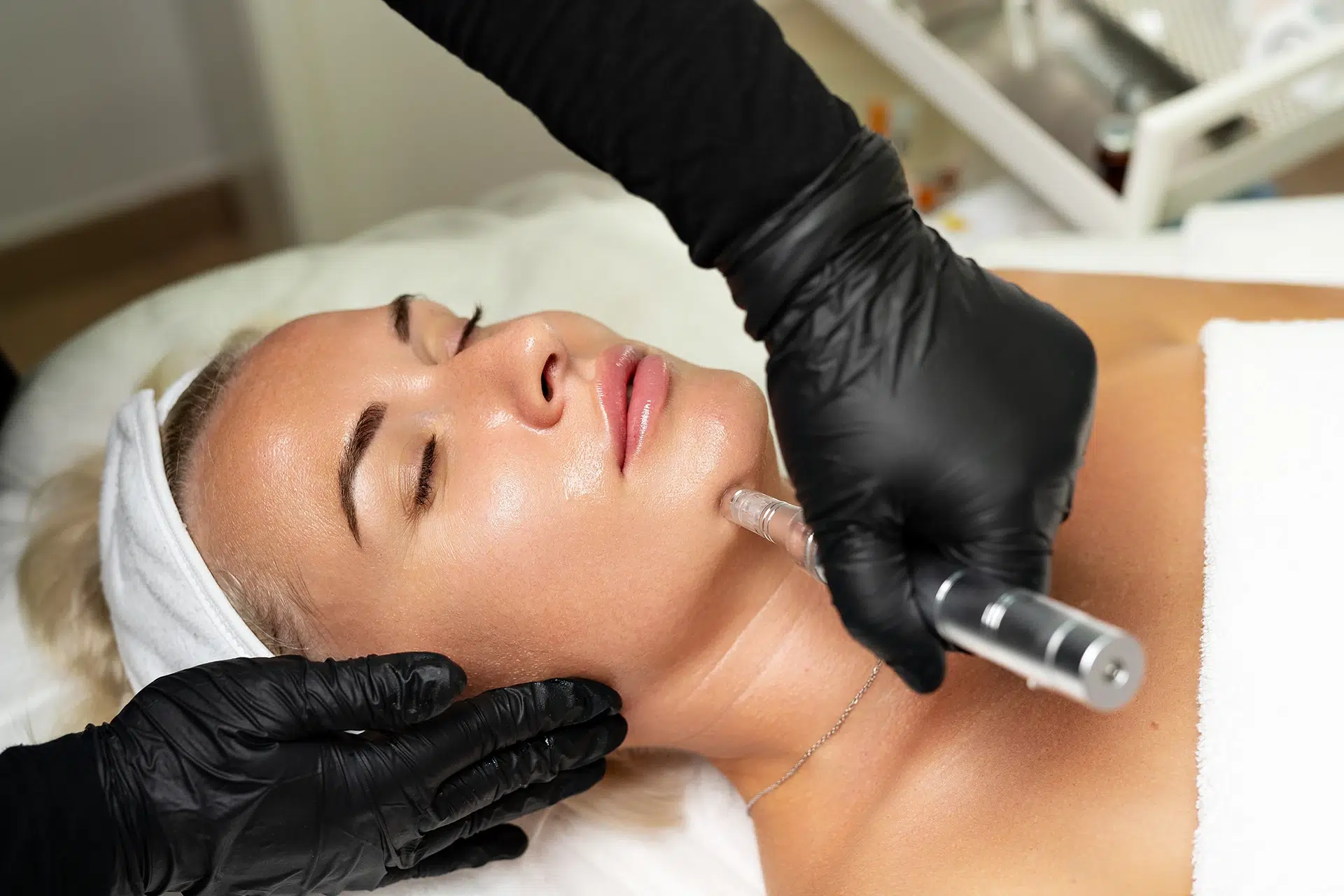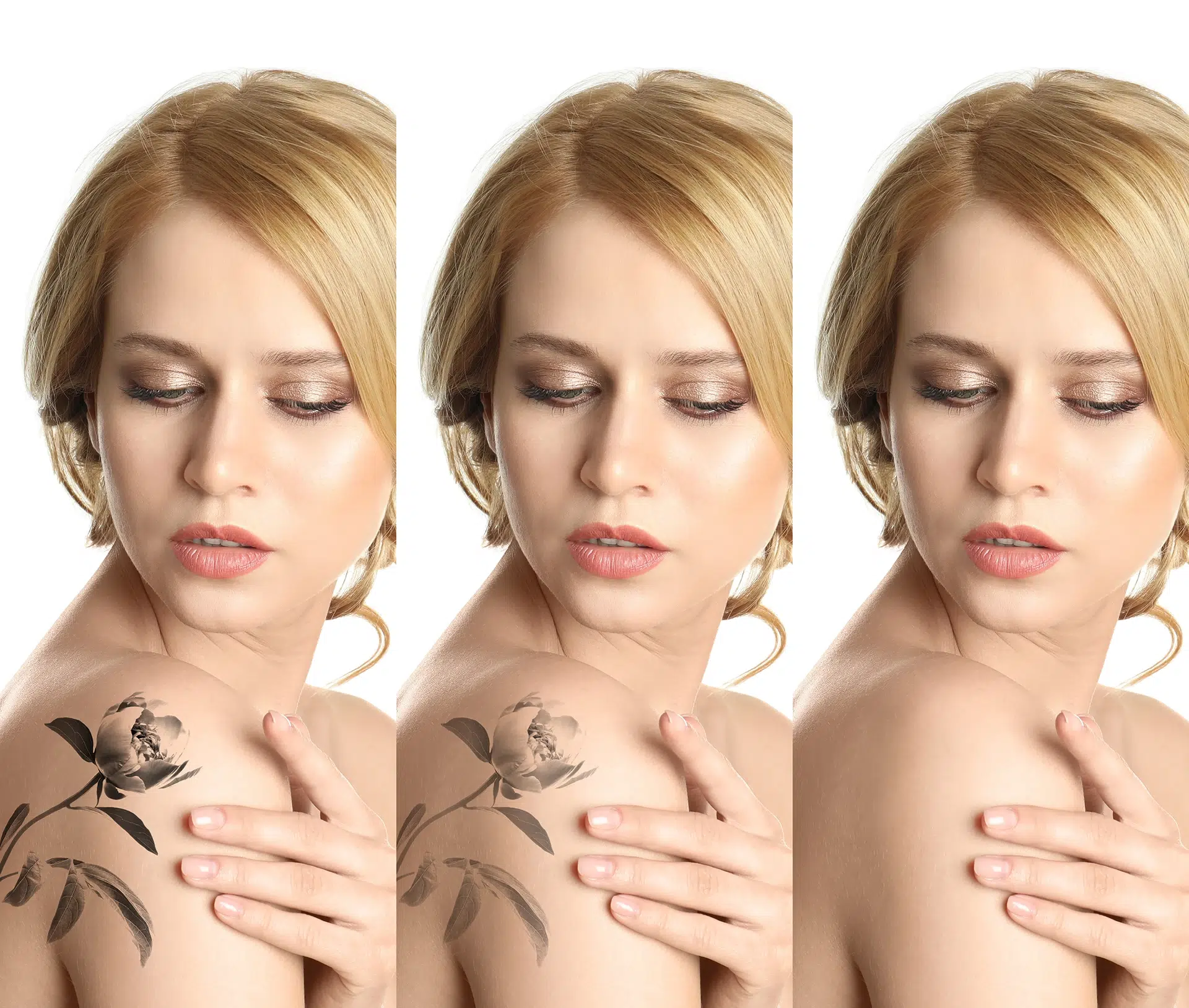If you have sensitive skin or eczema, both of which weaken your skin’s barrier function, you may suffer higher sensitivity. The good news is that many people with sensitive skin can benefit from well-executed laser skin treatment if they take the right advice from their physician and use the correct laser for both pre-and-post care.
What Are Lasers and What Are their Types?
Light augmentation by the stimulated discharge of radiation is known as “laser”. It is a skin-resurfacing treatment that uses light and heat to enhance skin tone, texture, and coloring. This is accomplished by inflicting controlled damage on the tissue, causing the body to respond with a healing reaction that improves its appearance.
Various Types of Lasers Exist for Skin Treatment. They Are:
1. Ablative
These are the most powerful lasers available. They remove the epidermis (the top layer of your skin) and a piece of the dermis by superheating water in the skin (the second layer of your skin). This results in the controlled vaporization of skin cells. The body reacts by producing newer, younger-looking skin.
2. Non-Ablative
Non-ablative lasers are milder than ablative lasers. Non-ablative lasers function by focusing their energy considerably lower into the underlying tissue. This laser is also a great option for darker-skinned people.
3. Fractionated
Since its introduction to the market in 2004, fractionated lasers have proven to be game-changers in laser skin treatment. It provides heat and light in a fragmented form. So, instead of burning the entire skin, there are digital pixels of laser that obliterate the target, allowing for rapid healing without inflicting injury to the entire skin at once.
4. Light Therapies
Light therapies, commonly known as intense pulsed light (IPL) or violet-blue light, are neither lasers nor do they resurface the skin. They are, instead, a “rejuvenating” treatment. They produce many of the same effects as lasers but are more focused and gentle. As opposed to employing a single laser that focuses on your skin, light treatment employs numerous wavelengths of light simultaneously. Additionally, there are several lasers to treat rosacea, spider veins, sun spots, and melisma to scar and tattoo removal. Q-switched, pulsed dye, Nd: YAG, and Picosecond are some of these lasers. See Also: Which Laser Treatment Is Best For Face Skin Lightening?
Choosing The Right Laser
Choosing the right laser for your treatment is very important to mitigate any possible side effects or risks associated with the treatment. Here are some steps which you should consider:
1. Work with Your Dermatologist to Choose One
It’s best to get treatment from someone who has experience with various lasers. Doctors with multiple machines may tailor treatments based on which wavelengths of lasers work best for them, and sometimes it’s a combination of different lasers and wavelengths. So, if you’re thinking about getting laser treatment, make sure you understand the benefits and drawbacks and ask about recovery time.
2. Ask Any Question You Have
With lasers, the general rule of thumb is that the more intensive the treatment, the more downtime required, and the better the outcome will be. If it’s vice-versa, more sessions will be required to achieve a satisfactory result. Make a list of the top three things troubling you about your skin before seeing a doctor. This way, your dermatologist can assist you in determining the best laser or light therapy for you in a quick time.
3. Approach Lasers With Caution In Case If You Have Dark Skin Tone
Not all skin tones react the same way to lasers. Dermatologists use the Fitzpatrick scale, a color classification system for human skin, to evaluate the reaction of various kinds of skin to ultraviolet (UV) radiation. However, this does not mean that those with darker skin tones should avoid lasers entirely. Instead, proceed with care and seek a specialist with expertise in laser who can best assess the value vs. dangers of your treatment.
4. Avoid The Treatment If You Have Active Acne
Lasers and other light treatments may appear to be the ideal acne therapy –shoot light at the acne to make it disappear. But it’s not that easy. Although lasers can be beneficial for resurfacing acne scars, you should seek therapy with blue or blue-red light for active acne. Your dermatologist may advise you to use another acne therapy, such as medication applied to your skin, to achieve the greatest results. See Also: Does Laser Treatment Help with Scarring?
Laser Skin Treatments in Freehold, NJ
Laser skin treatment is an effective solution but choosing the right laser for sensitive skin is essential. If you are looking for a dermatologist in Freehold, NJ, The Youth Fountain offers the best laser treatments for sensitive skin. Contact us now to schedule a laser treatment session to help revitalize your skin.



